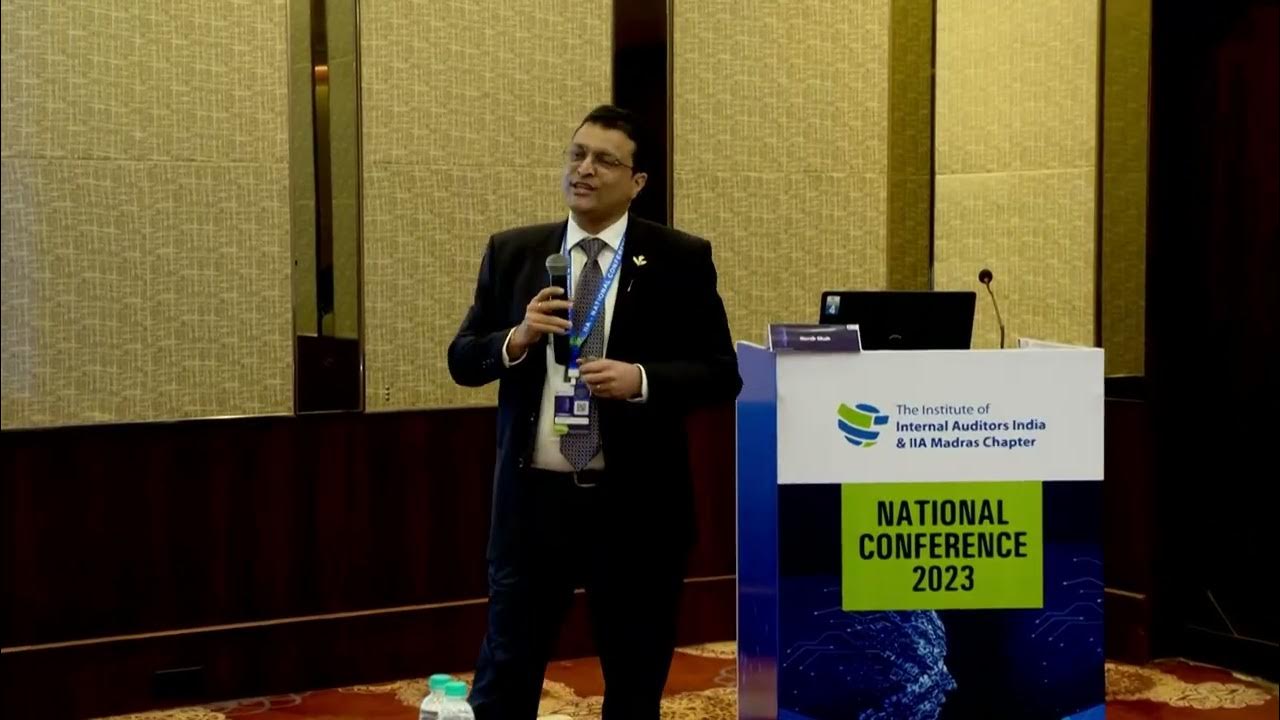Panel Discussion: Supply Chain Risk & Resilience
Summary
TLDR在伦敦Tobacco Dock举行的采购和供应链现场活动中,举行了一场关于供应链风险与韧性的小组讨论。讨论由David Shepard、Grant John和Daniel Weiss三位专家领衔,他们分别来自伦敦证券交易所集团、Interos韧性实验室和波士顿咨询集团。讨论涵盖了当前供应链面临的主要风险,包括疫情、乌克兰局势以及对俄罗斯的制裁等。专家们强调了数字化在提高供应链可见性和韧性中的重要性,同时指出需要手动和自动化工作相结合以应对不同类型的风险。此外,讨论还涉及了如何建立风险意识文化、管理已知与未知风险,以及通过公私合作伙伴关系共享信息以提高整体的供应链韧性。最后,专家们提出了关于如何在供应链中实现风险和韧性的建议,包括关注灰色犀牛风险、确保高层支持、以及加强内部信息共享。
Takeaways
- 🌐 **全球供应链风险与韧性**:当前,供应链风险和韧性是全球关注的焦点,这不仅因为新冠疫情和乌克兰局势,还因为其他地缘政治因素,如波兰和保加利亚拒绝从俄罗斯购买天然气的事件。
- 📈 **数据与可见性**:数据和可见性对于提高供应链的韧性至关重要。通过数字化手段可以更好地监控和应对供应链中的各种风险。
- 📚 **风险管理**:组织需要建立有效的风险管理机制,包括对已知风险的规划和对未知风险的敏捷适应。
- 🔍 **深入洞察**:需要深入理解供应链中劳动密集型和资产密集型过程的不同影响,以及它们在面对冲突、战争或大流行等情况时的不同应对策略。
- ⏳ **应对速度**:在快速变化的全球环境中,企业需要迅速适应新的制裁政策和大流行的影响,这要求企业在风险管理上更加迅速和灵活。
- 🌟 **竞争优势**:在风险和韧性管理中,企业不仅可以通过提高效率来获得竞争优势,还可以通过快速适应变化来实现。
- 📉 **通货膨胀**:通货膨胀是一个重要问题,尽管当前焦点可能在其他领域,但它将对全球经济产生重大影响。
- 🌱 **可持续性与气候变化**:尽管当前有许多紧迫的风险问题,但可持续性仍然是企业议程上的重要议题,特别是在ESG(环境、社会和治理)投资日益增长的背景下。
- 🤝 **合作优势**:在管理供应链风险时,企业可以通过与其他组织合作来共享信息和资源,从而提高整体的韧性。
- 🏛️ **政策与法规**:数据隐私和法规限制了信息共享,但公私合作伙伴关系可能成为解决这一问题的关键。
- 📝 **内部协调**:组织内部的信息和知识共享对于有效管理风险至关重要,需要确保内部协调一致。
Q & A
在讨论供应链风险和韧性时,为什么说这是一个不仅仅局限于当前讨论的主题?
-虽然供应链风险和韧性是当前讨论的热点,但这并不是唯一的议题。因为除了应对风险和增强韧性外,公司还需要继续日常运营,比如管理供应商、完成采购项目等。同时,由于当前全球形势的变化,如疫情、地缘政治冲突等,供应链问题受到了前所未有的关注,这要求供应链专业人士提升自己的能力,利用这一机会改善现状。
如何通过提高可见性来改善风险管理和韧性?
-提高可见性是改善风险管理和韧性的关键。这涉及到通过数字化手段获取关于供应链的实时数据,以便更好地理解正在发生的情况。此外,需要有有效的应急计划,以及能够快速适应变化的敏捷性。
在当前的全球形势下,供应链专业人士如何提升自己的能力?
-供应链专业人士应该利用当前对供应链问题关注的增加,提升自己在风险管理和供应链韧性方面的专业技能。这包括更好地利用数据和技术,提高对供应链中断的预测和响应能力,并在组织内部建立一种风险意识文化。
为什么说我们现在所处的是前所未有的时代,并且这对供应链管理有何影响?
-我们所处的时代是前所未有的,因为近年来连续发生了多起重大危机,如美中贸易战、新冠疫情、苏伊士运河堵塞以及乌克兰战争等。这些事件的发生速度和连续性对供应链管理产生了巨大影响,要求供应链管理者能够快速适应并应对未知风险。
如何理解并管理已知风险与未知风险?
-已知风险是那些已经在计划中考虑的风险,而未知风险则是需要在发生时灵活适应的风险。有效的风险管理策略需要能够识别并优先处理那些对组织影响最大的风险,并确保组织能够快速反应,以利用可能出现的机会。
为什么说当前的通货膨胀问题没有得到足够的讨论?
-通货膨胀是一个重要问题,但当前的讨论往往集中在其他紧迫的全球事件上。然而,通货膨胀对经济有着深远的影响,如影响消费者购买力、企业成本和整体经济增长。因此,需要更多地关注并讨论通货膨胀问题。
如何建立一个对风险有认识和准备的组织文化?
-建立风险意识文化需要从顶层开始,确保有高层的支持和组织内部的共识。每个人都应该感到对风险管理有所贡献,并且需要有一种机制来鼓励员工分享他们观察到的任何可能影响供应链的信号或事件。
气候变化和可持续性问题是否因为其他风险的出现而被边缘化了?
-尽管当前有许多紧迫的风险问题,但气候变化和可持续性问题并没有被边缘化。相反,这些问题正在变得更加成熟和全面,并且与风险管理的各个方面紧密结合。在许多组织和投资者的议程中,ESG(环境、社会和治理)因素变得越来越重要。
在未来一两年内,风险和韧性将如何发展?
-风险和韧性的发展将更加注重预防和准备,而不仅仅是应对。组织将更加重视技术和数据分析,以提高对潜在风险的识别和响应能力。此外,将更加关注整个供应链的风险管理,包括那些可能不直接管理的间接关系。
如何利用合作优势来提高风险管理和韧性?
-通过与其他组织合作,可以共享信息和资源,提高对风险的识别和管理能力。合作优势可以帮助组织更好地理解和管理其供应链中的风险,尤其是在面对那些单一组织难以独自管理的复杂和广泛风险时。
实现供应链中的风险和韧性的最佳建议是什么?
-关注那些已知的、可能成为重大风险的“灰犀牛”事件。收集和分析数据,准备应急计划,并在风险成为现实时迅速采取行动。确保组织内部信息共享,以便能够及时响应风险事件。
Outlines

This section is available to paid users only. Please upgrade to access this part.
Upgrade NowMindmap

This section is available to paid users only. Please upgrade to access this part.
Upgrade NowKeywords

This section is available to paid users only. Please upgrade to access this part.
Upgrade NowHighlights

This section is available to paid users only. Please upgrade to access this part.
Upgrade NowTranscripts

This section is available to paid users only. Please upgrade to access this part.
Upgrade NowBrowse More Related Video

Reshaping Business and Supply Chain Strategy Beyond Covid-19 with Professor Yossi Sheffi

Bend but don’t break: Future-proofing the pharmaceutical supply chain

Omera Khan: Building robust & resilient supply chains in today's dynamic business environment

Track B - Evaluating Supply Chain Strains in their Race to Robustness, Flexibility & Resilience

Webinar: "Entendiendo la Resilencia en la Cadena de Suministro"

How Can Supply Chains Embrace Sustainability?
5.0 / 5 (0 votes)
